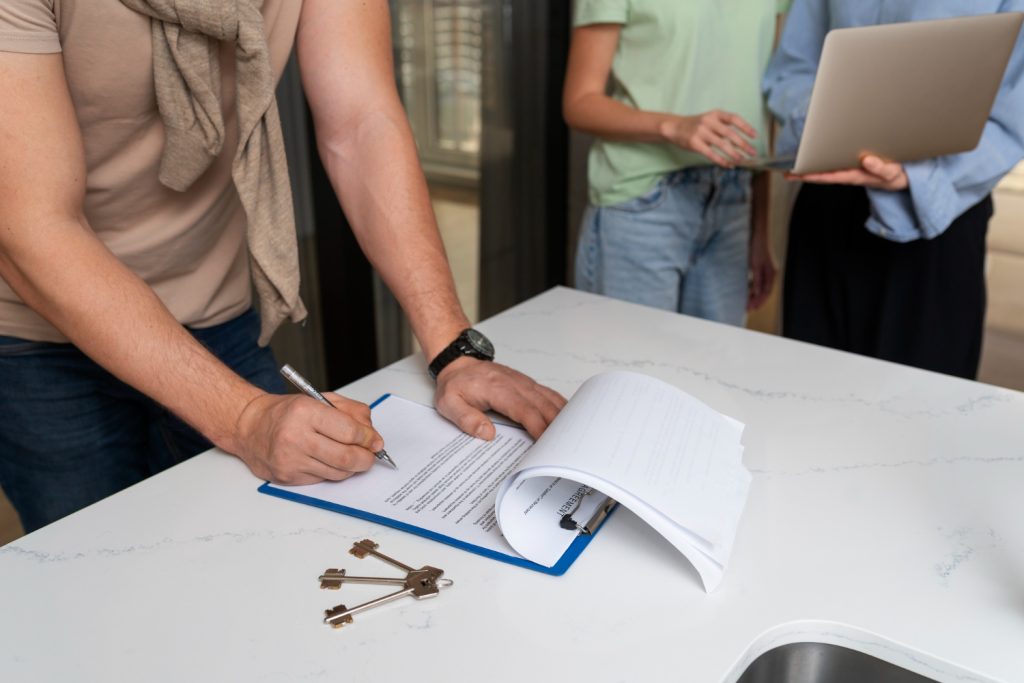DiedInHouse.com is a paid service that checks if someone passed away at a specific U.S. address by scanning public records, news articles, and obituaries. While helpful, it charges nearly $12 per report. If you’re buying or renting a property and want to know more about its history—including deaths, crimes, or fire incidents—there are several free or low-cost alternatives that offer similar data using public resources.
Whether you’re searching for peace of mind, researching a haunting, or looking to avoid stigmatized properties, these tools can help.
1. Google Search
As simple as it sounds, Googling the address (e.g., “123 Main St Springfield death” or “accident at [address]”) can reveal local news articles, archived listings, or neighborhood discussions.
Try searching with variations, including city name, ZIP code, and keywords like “died,” “murder,” “incident,” or “crime.”
Best for: Quick public results without needing an account or tool.
2. Property Records via County Assessor or Recorder
Most counties in the U.S. offer free online access to property records, which can reveal previous owners, foreclosure history, and in some cases, whether the home was involved in legal proceedings that could be tied to a death.
Check your local county assessor’s office or property appraiser’s website.
Best for: Ownership history and red flags like sudden property transfers.
3. Newspapers.com (Free Trial)
Newspapers.com offers searchable archives of newspapers going back centuries. During its free trial, you can search by address or previous residents’ names to find obituaries, police reports, or articles about house-related incidents.
It’s not entirely free but useful for deep local research.
Best for: Historical newspaper archives and obituary mentions.
4. Legacy.com
Legacy.com hosts millions of obituary listings from U.S. newspapers. If you know the name of a former resident or found it through property records, search here to check if they passed away at home.
Best for: Verifying deaths of previous residents tied to an address.
5. FamilySearch.org
A free genealogy resource run by the LDS Church, FamilySearch.org provides access to death records, census data, and historical family trees. If you uncover a past resident’s name, you can use this to track death details and locations.
Best for: Researching death records and family histories connected to a property.
6. Social Media and Reddit
Local Facebook groups and Reddit subs (like r/AskReddit or city-based communities) can be great places to ask: “Does anyone know if something happened at [address]?”
Neighbors often know more than public records. Use these platforms with caution and respect for privacy.
Best for: Crowdsourced insights and local knowledge about strange events.
7. Zillow or Realtor.com Listing History
Sometimes, Zillow, Realtor.com, or Redfin listings include notes about the home’s past—such as whether it’s a “stigmatized property.” Look for gaps in listing history, frequent ownership changes, or language like “motivated seller.”
Best for: Spotting suspicious listing patterns or rapid resale activity.
8. HouseCreep
HouseCreep is a crowd-powered database of “creepy homes,” including places where murders, suicides, fires, or paranormal events occurred. It allows users to search by address, city, or ZIP code and browse local incidents.
While not exhaustive, it’s one of the few platforms dedicated to public “home horror history.”
Best for: Finding homes tied to crime, death, or unusual events.
9. Murderpedia or CrimeReports Archive
Sites like Murderpedia offer indexed records of known homicides, often listing victims’ or offenders’ addresses. Combine this with local crime maps or past reports to match names and locations.
Use in conjunction with other sources for more accurate results.
Best for: Researching murder cases linked to an address.
10. Neighbors App (by Ring)
While not made for historical death records, the Neighbors app provides real-time local crime alerts shared by residents and law enforcement. You can review past incidents in a neighborhood and identify patterns of break-ins, fire, or suspicious activity.
It won’t tell you who died in a house—but it may show if the neighborhood has a reputation.
Best for: Evaluating a home’s surroundings and safety history.
How to Research If Someone Died in a House for Free
While DiedInHouse.com centralizes data into a paid report, you can often uncover the same insights by using Google, property records, obituaries, and community forums. Tools like HouseCreep, Newspapers.com, and FamilySearch can fill in deeper historical details.
Combine several of these free tools to cross-reference names, dates, and property records. And if all else fails—ask the neighbors. They usually know more than the internet.







